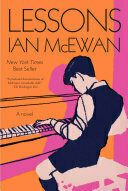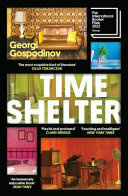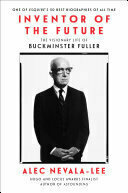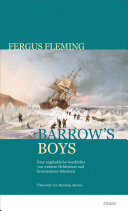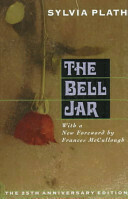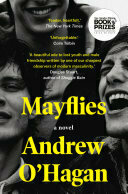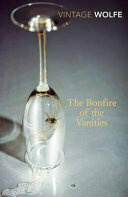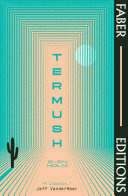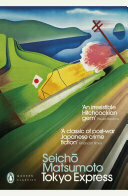Currently reading: Judas by Amos Oz 📚absolutely hooked on the characters and the setting of 1959 Israel
Bit too heavy in the end for me but .. tldr - Rasputin was a sexual predator, we know this, but the times he lived in were fascinating : Rasputin by Douglas Smith 📚
GA4… GTM… Consent Mode v2.. GA… BiqQuery… you can all get in the sea 🌊
Another AI enabled glasses product. Although this one looks like it’s been made for humans, which is refreshing: https://brilliant.xyz
This is a well-written manifesto on JS based web development: ahastack.dev
We use Astro for wonderbly.com with some React for interactivity and it does feels like the square-peg in the Astro’s round-hole.
The more I read about htmx the more I want to join its hype train :D
“Things can only get better” (famously used by UK Labour in 97) just came on radio. Got me fired up for a general election, we need one!
Currently reading: October, October by Katya Balen 📚
Oooh this is a good one, kids are hooked
Finished reading: Tokyo Express by Seicho Matsumoto 📚
Sailing goals for 2024: to be a (somewhat) competent member of a crew
Bye for now omg.lol, you were great
Finished reading: Empire of the Sun by J. G. Ballard 📚
Incredibly moving. First time reading Ballard so this was an eye opener as the book is quasi autobiographical. It focuses on Shanghai just before WWII starts in the Pacific. It is under Japanese occupation but the International Quarter is largely respected. The Brits still control this little area in the colonial way, with Jim living a life of luxury in amongst a hungry, poverty-stricken Shanghai.
This changes suddenly when the Brits and other expats are interned at PoW camp. The story is told through the eyes of Jim: a young, frenetic but endearing teenager, who never quite shrugs off childish ideas and questions, much to annoyance of the adults. This keeps him real and hopeful and even idealistic, despite being in a PoW camp.
One of the most interesting threads of the book is how these pompous and over privileged colonial-master type Brits and others find themselves having to live in this new reality where they are reduced to starving, desperate prisoners of war. All the trappings of their life, their power and wealth are shredded yet some cultural norms are still there.
There’s a hugely interesting thread in the book about the seeds of modern China emerging in this book.
It is the story of the subjugated local Chinese, who - except for the militias - seem to have to given up on life and resistance and live a pitiful life devoid of any meaning or dignity. No-one, neither the Brits or the Japanese value their lives, disgustingly.
There’s a telling line at the end of the book, after the war when Shanghai is back in Allied hands:
However, the heads of the Chinese were already turning to another spectacle. A crowd had gathered below the steps of the Shanghai Club. A group of American and British sailors had emerged through the revolving doors and stood on the top step, arguing with each other and waving drunkenly at the cruiser moored by the Bund. The Chinese watched as they formed a chorus line. Provoked by their curious but silent audience, the sailors began to jeer at the Chinese. At a signal from an older sailor, the men unbuttoned their bell-bottomed trousers and urinated down the steps. Fifty feet below them, the Chinese watched without comment as the arcs of urine formed a foaming stream that ran down to the street. When it reached the pavement the Chinese stepped back, their faces expressionless. Jim glanced at the people around him, the clerks and coolies and peasant women, well aware of what they were thinking. One day China would punish the rest of the world, and take a frightening revenge.
Finished reading: Luster by Raven Leilani 📚
Arresting novel about a woman who has a relationship with a married man and becomes part of his family. Big dynamics on race and power. She’s got serious issues which he uses for his benefit, unwittingly or not. His wife is the most interesting character and their friendship is crux of the book.
Side note: made me also think about what a NJ life would have been for my wife and I, had we stayed in New York. Unrelenting pressure of competitive burbs, living in indentikit, soulless houses in “safe” neighbourhoods. The feeling of guilt if you’re not doing everything all the time compounded if you feel that guilt for your kids. Totally beside the point of the story but nevertheless that was my personal reaction.
My whiteness and privilege probably means many underlying messages of the book go over my head. Enjoyed it despite that and learned things about being black in America that I had a low level awareness of but now have an appreciation that is slightly less shallow.
The prose is fast! Highly enjoyable to read, reads like a proper new yorker jabbering away at you a million miles per hour. Precise and funny but also sad.
Finished reading: Britain Alone by Philip Stephens 📚
Historical account of British foreign policy and geopolitical positioning from Suez to Brexit. Holding ourselves up to the “great power” mirror and seeing a real one reflected in the 40s and early 50s to a quickly diminishing one in the 60s to a former one in the 70s and onwards.
As a historical account kept me hooked. Lots of new detail I didn’t know about Suez, Polaris & Trident, the “Sterling area” and the rollback of Empire.
A large theme (and well trodden elsewhere), is that Britain having not lost the war, sees itself as different and apart from the “lesser countries” of Europe. In the post war period, it still saw itself as one of the “big three” of the US, USSR and Britain/Commonwealth/Empire. Whitehall in the 50s believed the terrible state we found ourselves in post war was merely temporary.
The first half of the book is the slow realisation that it was not temporary, with some fascinating insight into players like Harold Macmillian and the games he played with presidents and parliament. He knew that Britain could no longer act independently from the US and was becoming more economically dependent on the European Community. But post-war British “Great Power” pretensions, from both Labour and Conservative, means we miss out on the first wave of European integration.
Missing that first wave of European integration ends up being crucial to everything that happened next. The UK arrived too late and too poor. The rules of club were set, the direction of travel known. Next up: 40 years of sailing against the wind, demanding opt-outs, rebates.
A self important square peg of an island refusing to bend to the new European destiny that started in Sicily in the 50s, while we were begging the Americans for rockets to shoot nuclear weapons.
Finished reading: Helgoland by Carlo Rovelli 📚
I don’t know what it is about Rovelli, but I find his writing so relaxing and perfect to read before bed.
Finished reading: Zorba the Greek by Nikos Kazantzakis 📚
Zorba personifies my best and longest friend and this touched me because of that. I plan to go to Greece with him, rustle a sheep and eat it on the beach.
